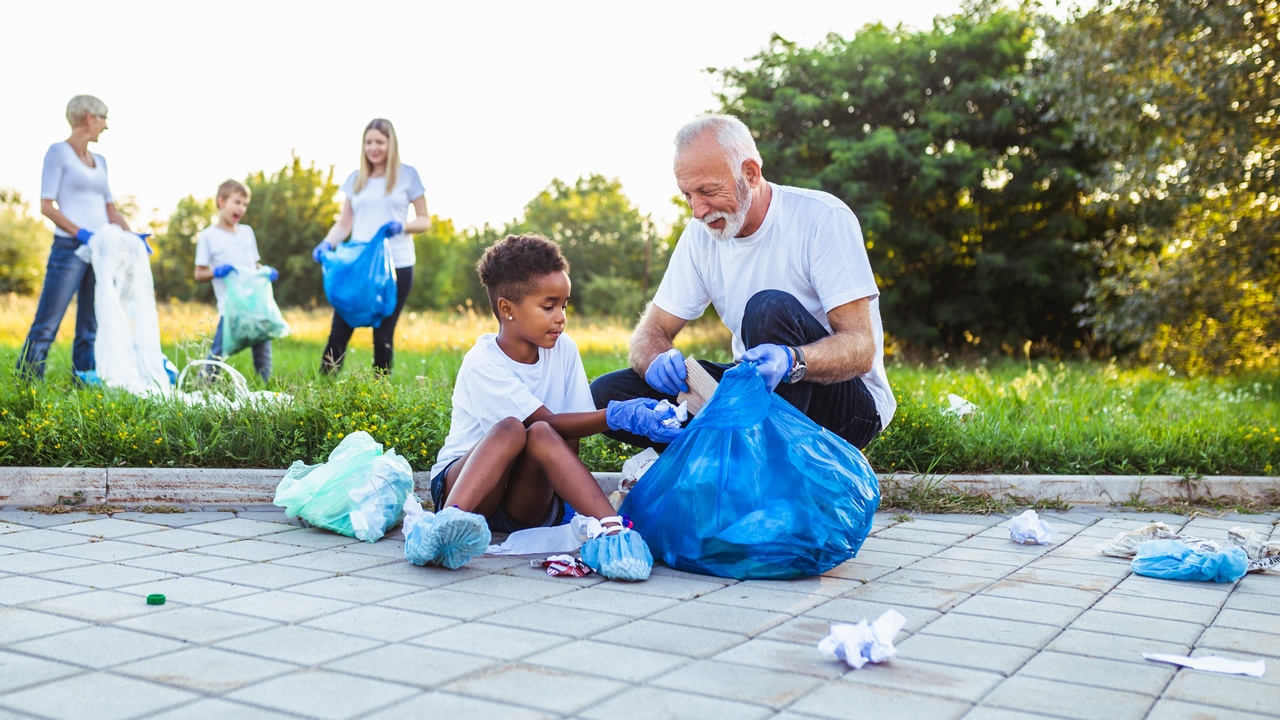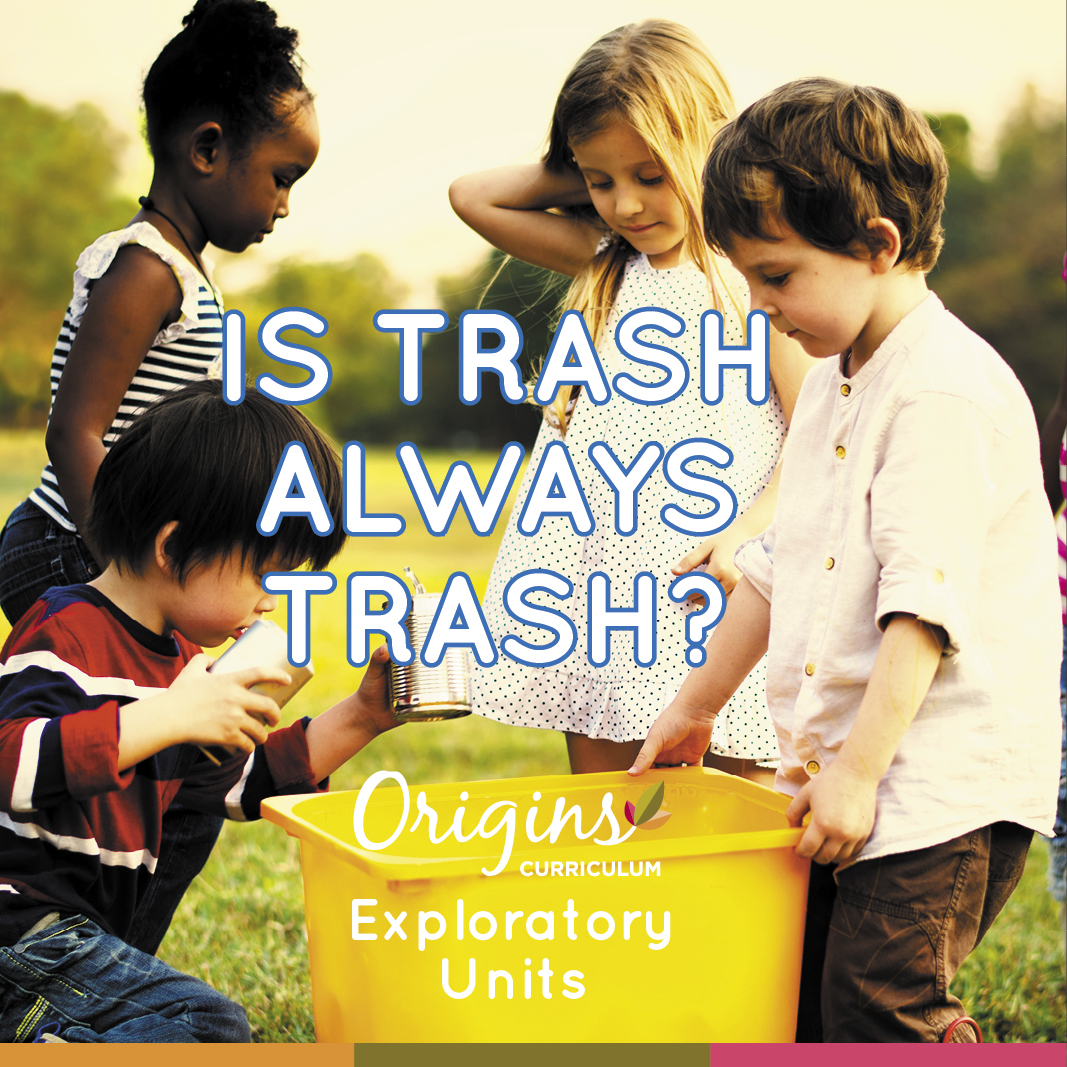Teaching With Trash
Jul 29, 2021
The average American produces just under 5 pounds of trash per day according to the US Environmental Protection Agency. For a typical family of four, that adds up to 20 pounds a day and 140 pounds a week. Imagine how much trash that means your neighborhood produces every week! Sure, there are garbage cans to contain the waste, and the trash truck probably makes its round each week collecting from each house. But what about the pieces that don’t make it into the trash? Maybe the wind blew a wrapper from an overflowing garbage bin on the curb, or the trash bag ripped while your neighbor was taking it out and they missed a piece or two. Or, there might be lots of foot traffic through your neighborhood and some people just aren’t aware of their impact on people’s homes and the environment when they toss their empty soda bottle or candy wrapper on the ground and keep walking.
That’s where educators at home and school have the opportunity to teach the next generation about their potential impact on the world and natural cycles around them. It can start with a project as simple as collecting loose trash around the neighborhood.

Here are 3 neighborhood trash collection ideas to try with your students:
- Some states offer buy-back programs for glass or aluminum. Check with your local waste management to see if you can exchange the glass or cans you and your students collect. Over time, you can put the money towards classroom supplies, a community container garden, or a treat to thank your students for helping keep their neighborhood clean.
- Team up with another class or a few friends and see who can collect the most trash in the neighborhood once a week. The winner gets a trophy repurposed from discarded goods. Keep the competition going each week and pass the trophy along when someone new wins. The winning team can even set the goal for next week.
- Spend the week collecting trash around your neighborhood with your students. At the end of the week, sort out the recyclables and explore more about the Reduce, Reuse, Recycle philosophy with our Exploratory Unit “Is Trash AlwaysTrash?” This unit will help students ages 3 to 8 discover how their choices can impact their health and their environment in a fun, adaptable lesson plan.
The world is our home, and our neighborhoods are our responsibility. Every small action today has the potential to ripple into big changes for our future. Let's help our students learn how they can impact the future by making conscious decisions to keep our homes and neighborhoods free of trash today.


